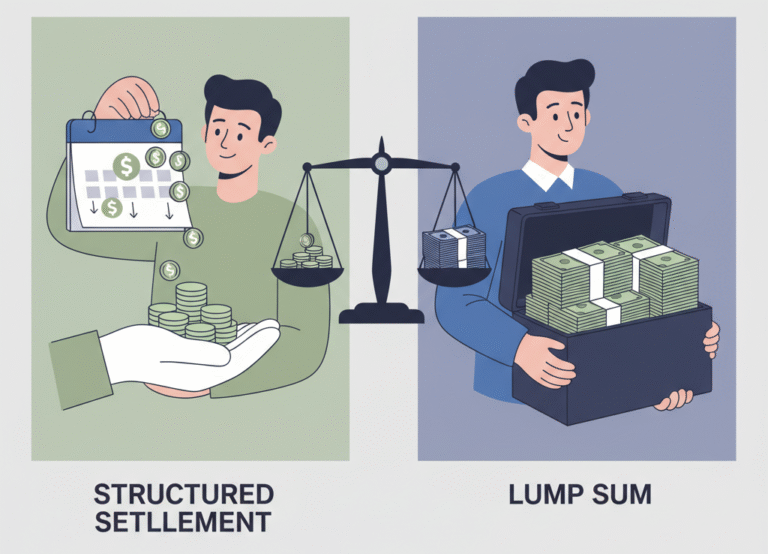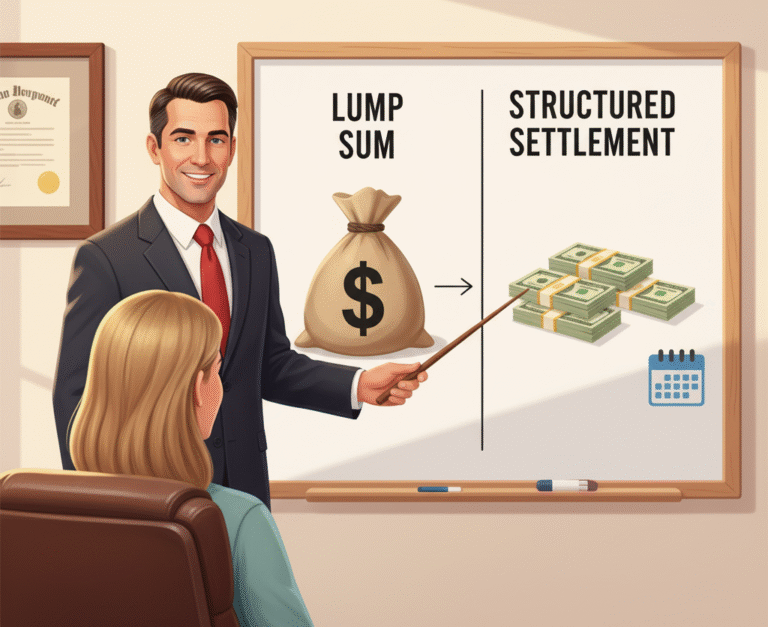Structured settlements can be confusing, especially if you’re trying to decide whether to sell, invest, or simply manage your payments wisely. Many people receive structured settlements through legal cases such as personal injury claims, but few truly understand how these payments work or what options they have.
In 2025, more individuals are searching for clear answers before making important financial decisions. This article compiles the top 10 most common questions about structured settlements, along with detailed expert answers. Whether you’re considering selling your payments, worried about taxes, or curious about investment opportunities, this guide will help you understand your rights and options.

Question 1: What is a Structured Settlement?
A structured settlement is a financial arrangement in which compensation is paid through regular installments instead of one lump sum. These are typically the result of legal cases, such as personal injury lawsuits. Payments can last for years—or even decades—offering financial stability.
Question 2: Can I Sell My Structured Settlement?
Yes, but only with court approval. Selling requires a legal process where a judge ensures the sale benefits you. This rule protects individuals from unfair deals.
Question 3: Why Do People Sell Structured Settlements?
Common reasons include:
- Urgent medical bills
- Paying off debt
- Buying a home
- Education expenses
- Investment opportunities
Question 4: How Safe is Selling a Structured Settlement?
It can be safe if you:
- Work with licensed companies
- Hire a lawyer for contract review
- Compare multiple offers
- Avoid scams or “too good to be true” deals
Question 5: Are Structured Settlements Tax-Free?
Yes—most personal injury settlements are tax-free under federal law. However, once sold, the lump sum may be taxed, depending on the circumstances. Always confirm with a tax advisor.
Question 6: How Long Does It Take to Sell?
Typically 30 to 90 days, depending on court schedules and paperwork accuracy.
Question 7: Can I Sell Only Part of My Settlement?
Yes, partial sales are common. You might sell 5 years of payments while keeping future ones. This provides immediate cash while maintaining some financial security.
Question 8: What Are the Risks of Selling?
- Receiving less money than the total value
- Hidden fees in contracts
- Loss of future tax-free payments
- Possible regret if money is spent quickly
Question 9: Can I Invest in Structured Settlements?
Yes, investors can buy structured settlements as an asset class. These provide steady returns and are often considered lower risk than volatile markets.
Question 10: What Should I Do Before Making a Decision?
- Research multiple companies
- Hire a lawyer for advice
- Consult a financial advisor
- Consider alternatives such as personal loans or refinancing
Structured settlements can provide stability, but they also come with choices and challenges. By asking the right questions—and knowing the answers—you can protect yourself from scams, avoid unnecessary taxes, and make decisions that serve your best interests. Whether you want to sell, invest, or simply manage your payments wisely, this FAQ guide gives you the foundation to move forward with confidence in 2025.




